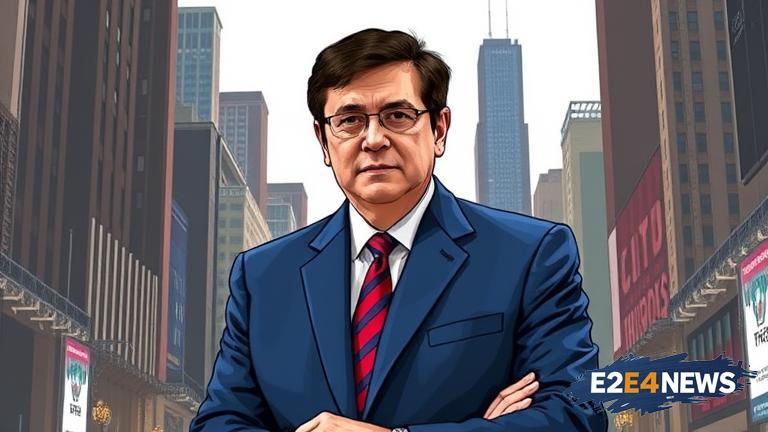In a bold move, Illinois Governor J.B. Pritzker has publicly told President Donald Trump not to come to Chicago, as the city is currently responding to a military deployment. The governor’s statement comes amid rising tensions and concerns over public safety in the wake of the deployment. According to reports, the military deployment is part of a larger effort to address issues of crime and violence in the city. However, many residents and community leaders have expressed opposition to the deployment, citing concerns over the potential for excessive force and the erosion of civil liberties. Governor Pritzker’s statement is seen as a direct challenge to the Trump administration’s handling of the situation. The governor has long been a vocal critic of the president’s policies, and this latest move is likely to further escalate tensions between the two. Despite the controversy, the governor remains committed to protecting the rights and safety of Illinois residents. In a statement, Pritzker emphasized the need for calm and restraint in the face of the military deployment, urging all parties to prioritize de-escalation and peaceful resolution. The situation in Chicago is being closely watched by officials and residents across the state, with many calling for a more nuanced and community-led approach to addressing the city’s challenges. As the situation continues to unfold, it remains to be seen how the Trump administration will respond to Governor Pritzker’s statement. The governor’s office has indicated that it is prepared to take all necessary steps to protect the rights and safety of Illinois residents, including exploring legal options and working with community leaders to promote peaceful resolution. Meanwhile, residents and community groups are organizing rallies and protests to express their opposition to the military deployment and to call for a more just and equitable approach to addressing the city’s challenges. The deployment has also sparked a wider debate over issues of policing, racism, and social justice, with many arguing that the deployment is a symptom of deeper systemic problems. As the situation in Chicago continues to evolve, it is clear that the city and the state of Illinois will be at the forefront of national conversations around issues of justice, equality, and public safety. The governor’s statement has been met with widespread support from community leaders and residents, who see it as a necessary step to protect the city and its people. However, others have criticized the governor’s move, arguing that it is overly confrontational and unlikely to resolve the underlying issues. Despite these criticisms, Governor Pritzker remains committed to his stance, emphasizing the need for a more thoughtful and community-led approach to addressing the city’s challenges. The situation in Chicago is a complex and multifaceted one, with deep roots in issues of poverty, racism, and inequality. As such, it will likely require a sustained and nuanced effort to address, one that prioritizes the needs and perspectives of community members and promotes a more just and equitable society. In the coming days and weeks, it will be important to watch how the situation in Chicago continues to unfold, and to consider the potential implications for the city, the state, and the nation as a whole. The governor’s statement has sparked a wider conversation about the role of the military in domestic law enforcement, and the potential risks and consequences of such deployments. As this conversation continues, it is likely that we will see a growing movement to rethink and reform our approaches to public safety and justice, one that prioritizes community-led solutions and promotes a more just and equitable society for all. The situation in Chicago is a powerful reminder of the need for ongoing activism and advocacy, as well as the importance of protecting the rights and safety of all individuals. As we move forward, it will be essential to prioritize a more nuanced and thoughtful approach to addressing the city’s challenges, one that takes into account the complex interplay of factors at work and promotes a more just and equitable society for all. In conclusion, the situation in Chicago is a complex and multifaceted one, with deep roots in issues of poverty, racism, and inequality. Governor Pritzker’s statement is a necessary step to protect the city and its people, and it is likely to have significant implications for the city, the state, and the nation as a whole.
